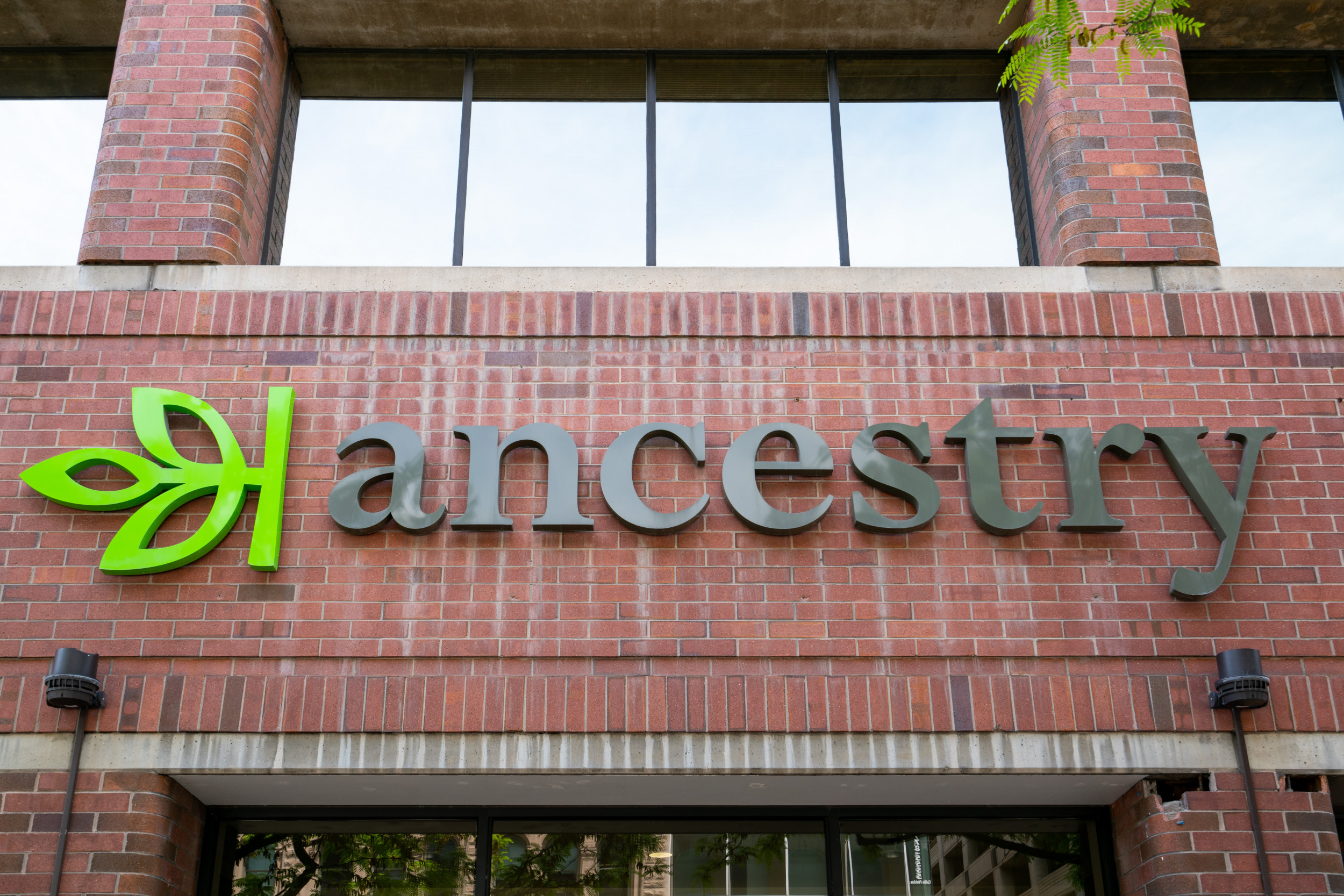
Claims have surfaced online that the investment firm Blackstone now has access to the genetic information of Ancestry.com customers, after it purchased the family history site for $4.7 billion.
While the deal was struck in August 2020, the theory has recently spread across forums including conspiracy theory focussed subReddits and Twitter pages.
Though it is not clear what sparked the latest revival of those narratives, recent posts containing such claims have been viewed thousands of times.

The Claim
In May 2022, posts across social media suggested Blackstone may now, having acquired 75% of Ancestry.com in 2020, own DNA samples belonging to the genealogy site’s customers.
Similar posts were shared on Twitter, despite the announcement of the Blackstone deal more than a year-and-a-half ago, as well as on 4Chan discussion boards.
The Facts
Details of Blackstone’s purchase of Ancestry.com were announced by the .
Prior to the takeover, Ancestry.com was the subject of several news stories that raised concerns about the ownership rights of DNA submitted by customers.
An investigation by fact checker Snopes in 2017 concluded that while signing up to Ancestry.com’s DNA test would not mean the company would own your DNA data in a “complete and permanent way,” customers would still have to “license” that information to the company.
Customers could still choose to not have their genetic information shared for “certain purposes,” have the license revoked and have their DNA data destroyed (which wouldn’t be possible if Ancestry.com owned it outright).
, Ancestry.com says it doesn’t share your genetic personal information with third parties and the company does not share common identifying information linked to genetic data.
It says: “You own your DNA data and you can ask us to remove your data from our systems at any time.
“We do not keep copies unless you have consented to participate in research, in which case only those research projects that are ongoing or completed will contain your data.”
Nonetheless the website also says in some of the risks involved in sharing data with Ancestry.com including:
- “Data about you could become public as the result of a security breach.”
- “When Biological Samples are physically transferred from us to Collaborators, there is a potential risk that the samples could be lost or stolen while in transit or storage”
It also states that when researchers publish results from an Ancestry.com project (which may include customer data) there is a chance that third parties could identify individuals from it.
Although such data, Ancestry says, would sit among aggregated results from many people, third parties could combine genetic data with other data available to them to identify an individual.
Newsweek has reached out to Ancestry.com for comment.
Crucially though, whatever rights Ancestry.com has to the DNA samples sent by its customers, the question of Blackstone’s involvement and its entitlement to that data is very different.
In a statement sent to Newsweek, Blackstone said its purchase of Ancestry.com did not grant it any rights to ownership of customer genetic information.
Blackstone spokesman Matt Anderson told Newsweek: “As we’ve said repeatedly, Blackstone has not and will not access user DNA data. To be crystal clear, doing so was never part of our investment thesis – period.
“We invested in Ancestry because it is a clear leader in its industry with a digital subscription business that has continued to grow significantly.
“Our focus from the start has been on providing capital to help the company invest in its core family tree product—further enhancing their already stellar resources for customers, and increasingly appealing to a wide cross section of families across ages and backgrounds.
It’s also worth noting that Ancestry.com has been owned by a number of equity and investment firms since it began as a publishing company in 1983.
In 2007, Ancestry.com’s parent company The Generations Network Inc sold a majority interest in the family history business for $300 million to . , this was the same year the company started offering a DNA sampling service.
In 2009, the company announced it was going public with an initial public offering of more than 7.4 million shares priced at $13.50 per share.
In 2012, a company owned by the European private equity firm Permira and co-investors entered into a definitive merger agreement to purchase Ancestry.com
This was the same year , which it called “a new affordable DNA test… to combine new state-of-the-art DNA science with the world’s largest online family history resource and a broad global database of DNA samples.”
According to its website, Ancestry.com says that over 20 million people are now part of its “DNA network.”
In an email to Newsweek, a representative for Ancestry.com responded that since the 2020 Blackstone investment, the relationship between Ancestry and its users remains the same.
“Ancestry’s terms and conditions and privacy statement that is in effect for our users remains the same. Ancestry’s commitments to protect its customers’ personal data has not changed.
“Ancestry does not sell or share customer DNA data with insurers, employers or third-party marketers, nor do we share customer personal information with law enforcement unless compelled to by a valid legal process. Ancestry’s commitment to these robust consumer privacy and data protections remain unchanged under our new ownership.”
It is true that there are legitimate concerns about the rights to genetic information sent to genealogy services. Stories like that of the Golden State Killer, a serial murderer who, after 40 years on the run, was identified using genealogy data, led many to question how securely genetic data is supervised.
However, there appears to be no evidence Blackstone owns or has access to Ancestry.com DNA data and no immediate evidence that its purchase presents legal or financial irregularities compared to previous company buy-outs.
The Ruling

False.
Blackstone does not own the DNA which Ancestry.com collects from its customers. Ownership of that information was not part of its 2020 takeover of the genealogy business. Contrary to the concerns on social media, Blackstone’s purchase is not a new type of takeover either. Ancestry.com has been majority owned by investment and equity firms for many years.
Update 05/09/22, 9:53 a.m. ET: This article was updated with a comment from Ancestry.com.
FACT CHECK BY NEWSWEEK














